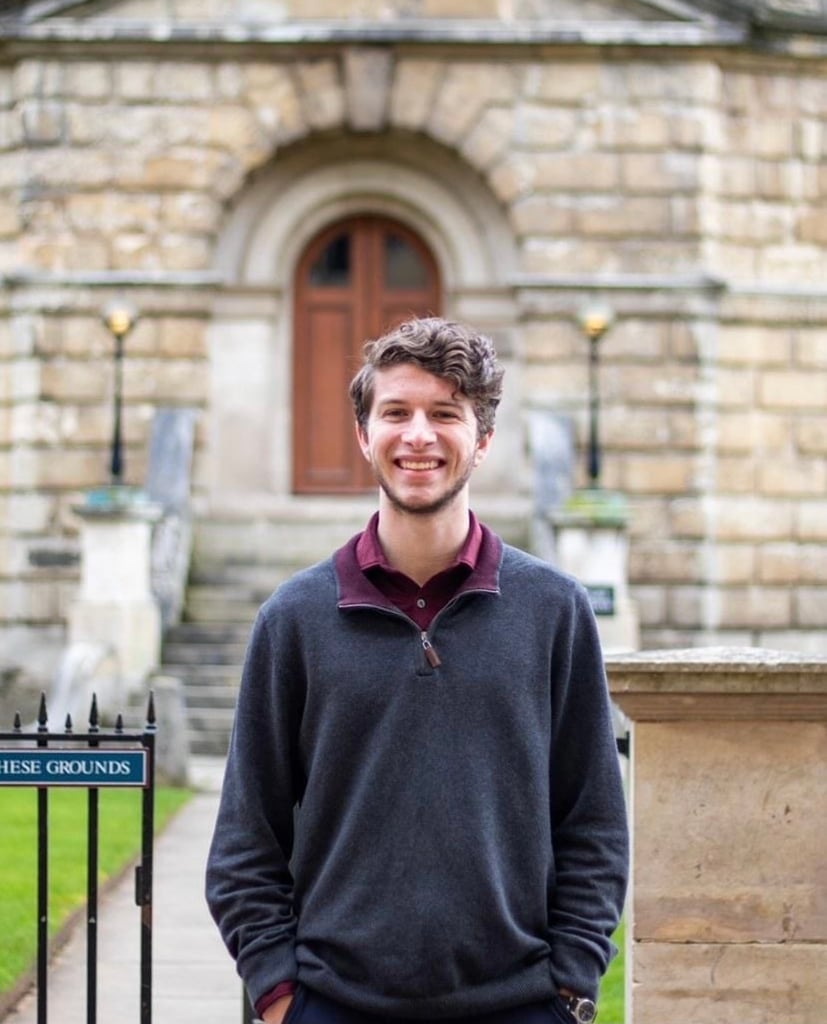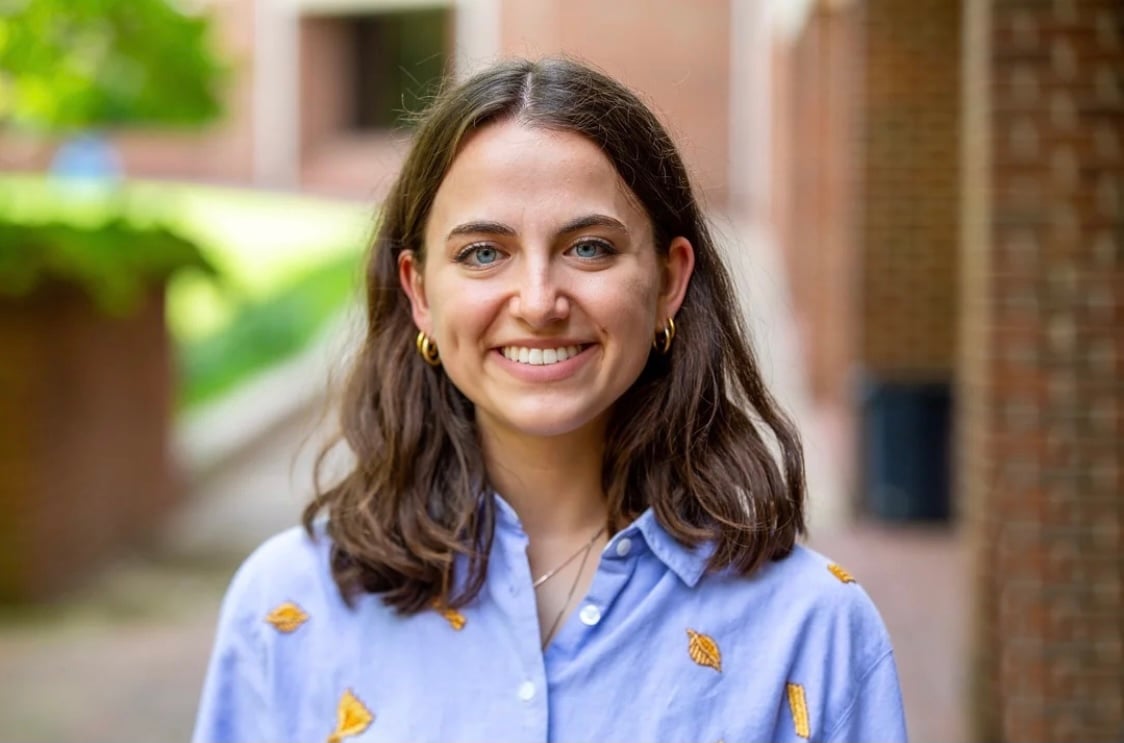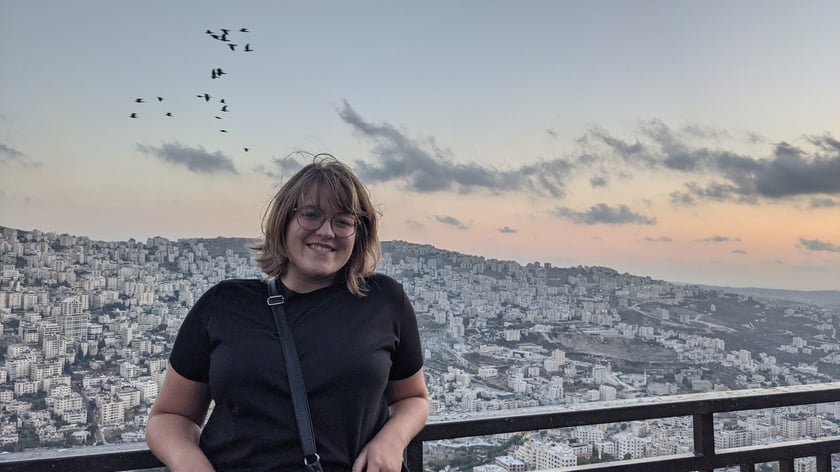![]()
Through Instagram, John Brown University shared how a significant number of 2021 graduates are pursuing their master’s degree and job opportunities abroad. This news — while already an outstanding accomplishment of its own — was an encouragement to current students that opportunities are starting to reappear after almost two years of dealing with the coronavirus pandemic.
The Threefold Advocate was able to get in touch with some of these graduates, who shared their experiences and walked us through the process of how they obtained these opportunities.
Coby Dolloff, who obtained his bachelor’s degree in English with a literature emphasis back in May, is in his first semester of graduate school at the Institute for Theology, Imagination and the Arts (ITIA) at the University of St Andrews in Scotland. He is pursuing a master’s in theology and the arts.

Dolloff shared how, so far, he is enjoying his time at his new alma mater. “The people I have met in St Andrews have been exceptionally friendly and welcoming.” Adjusting to a new country, however, is always a challenge. “There are some minor cultural differences that make daily life a bit of an adjustment, and I certainly miss my friends and family back in the States,” Dolloff admitted.
About his application process, Dolloff reckoned that applying to graduate school was almost the same in difficulty as applying locally in the States. Luckily, his previous JBU professors aided him in the process. “They guided me towards various graduate programs, advised me in the application process and took time out of their schedules to write letters of recommendation for me. I would not be here without them,” Dolloff said.
Dolloff is a big advocate for studying abroad. “I couldn’t recommend studying abroad more highly. If you can, you should. It expands your horizons, introduces you to new cultures and experiences and provides unique adventures and memories.” He could not be happier with his decision to go abroad for graduate school.
He insisted for those thinking about following his footsteps, “Ask your professors for help on your application. Don’t be too prideful or nervous to seek their advice and criticism. They know what grad schools are looking for and are willing to help you along in the process.” He also said to look for a host family for support. “It allowed me to quickly form close friendships and have a place where I feel loved, supported and challenged.”
Dolloff concluded his interview with a heartwarming anecdote: “My first Sunday here, I got invited to watch American football at a friend’s house. People were wearing jerseys, eating nachos—it felt just like a Sunday in the U.S. The only difference was that because of the time change, we were watching from 9 p.m. to 1 a.m. I definitely regretted it during classwork the next day, but it was totally worth it. Needless to say, I did not expect to be passionately (and unsuccessfully) rooting for the Dallas Cowboys every Sunday from Scotland just like I always did back home, but I’m definitely not complaining about it.”
Caroline White, a 2021 alumna who majored in English and history, is currently earning her master’s in history of design in the United Kingdom. White explained that, in her case, studying abroad was cheaper and offered better educational opportunities. “It just so happened that the history of design community is older and more established in the UK. The choice was between expensive, younger programs in the U.S. or this one, which offered better connections to both the design/fashion and the museum world.”

White shared the same opinions as Dolloff about the process of applying for graduate school abroad. “[It] was essentially the same process as applying to U.S. grad schools: time-consuming, but no extra work on the front end.” Like Dolloff, she advised others to study abroad.
Still, White admits that adjusting has been hard. However, she feels the difficulty is less about living overseas and more about the life-transitioning period. “I think the difficulty comes less from a new country and more from the new crop of strangers who all need to be met and befriended before you can have that good, ol’ community we all know and love.” With this in mind, White’s advice for a smoother transition relates to creating relationships. “Try to find some people in your cohort or from your school to live with — if you’re moving abroad, it can be so much lonelier to live alone.”
White, who is passionate about studying our relationship with objects, clothes and physical spaces, and “hopes of writing about those kinds of things in the future,” has found herself perplexed by some — in her opinion — strange traits and products of the UK. “For example, I’m absurdly fixated at the moment on why the, shall we say ‘autumn industrial complex,’ is so much larger in the United States. I have found approximately one shop in the whole of London that has pumpkin-scented candles, and, trust me, I have run myself into the ground looking for others.” She also mentioned the absurdity of white chocolate Oreos named and sold as “OREOS: Snowy Enrobed” and her disappointment in the yogurt selection.
A little farther from home, and with a more extreme cultural change, Anna Noden, who majored in English Education at JBU, is currently teaching high school history at a local private school in Nablus, Palestine. “I have been planning to work abroad most of my life,” Noden shared. “I was motivated by my desire to learn new cultures and languages as well as the fact that the workaholism of the American job force is not attractive to me. I prefer the career models I have seen elsewhere.”

She explained that for her, the process to obtain her job was not complicated at all. “I just applied, got an interview and was hired. It was a very easy process, mostly because my school provided so much information upfront and were very transparent about what they offered and what life would be like here.”
Nonetheless, she advises anyone thinking of applying to a similar job to still ask lots of questions. “Make sure to think through the reality of life there. What I mean is: think about who you will be living with, how you spend your free time, what you normally eat and what new foods you are open to trying, how much you rely on the internet or electricity, how much you are willing to change your wardrobe, where you will go to church, what you will miss most about the US, what routines are very important to you, how you will get medical assistance if needed and what community and support you will have. Try not to romanticize life abroad but be as realistic as possible.” She admitted that she would not recommend this for everyone.
Noden, while keeping it real and describing this first year as a year of “perpetual discomfort and steep learning curves,” has also had other rewarding experiences that remind her why she loves and chose to live abroad. “I live in the city where Jesus met the Samaritan woman at the well. I got to see the well and drink water out of it. It was a powerful experience.”
As seniors this year start to ponder upon their options toward graduate school or job opportunities, studying or working abroad is an option that now more than ever can be achievable if they choose to pursuit it.
Gabriela Arosemena





